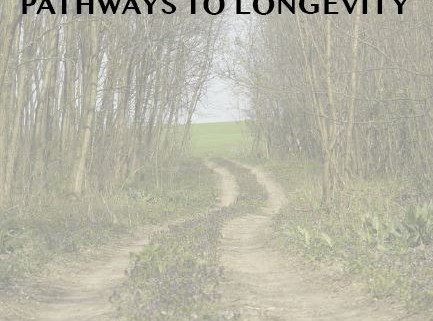The Art and Science of Aging Well
Today Dr Baylac was a keyspeaker on longevity at the Pathways To Longevity Conference hosted by the Centre for Neuroskills in Honolulu. The Art and Science of Aging Well discusses key concepts of aging and aging well.
Where are the five highest concentrations of centenarians in the world, the so-called Blue Zone Locations?
- The community of Seventh Day Adventists in the small town of Loma Linda in California
- Okinawa Island in Japan, famous for the longest disability-free life expectancy in the world
- Sardinia, Italy, with the highest concentration of centenarians
- Icaria, Greece
- Nicoya Peninsula in Costa Rica where healthy centenarians live in a solid support network of friends and family
What are the characteristics of these Blue Zone locations?
Geographic and Ideological Isolation:
- Centenarians live in isolated areas, on an island, peninsula or in religious isolation such as the 7th Adventists with little contact with the modern world.
- They operate as a community and take care of each others needs
- They live outdoors a good part of the time and get plenty of sun exposure
- They get plenty of physical activity: working in the fields, walking or bicycling to neighbor locations
- They have a strong sense of belonging, perpetrate tradition, family celebrations
- Happy and sense of purpose
Somehow, despite the presence of diseases, people who become centenarians don’t die from those diseases, but rather they are able to deal with them much better than other people and remain independently functioning more than 30 years beyond the age of 60.
Centenarians show delayed onset of cancer and cardiovascular disease as well as higher survival rates of these diseases.
- Cancer is delayed to the age of 80.5 years compared to 63.2 years in the general population2 (Most common cancers: breast, prostate and colon)
- 88% of centenarians delay or escape the age-related lethal diseases: cardiac disease, stroke and diabetes
The Okinawa island of Japan is famous for longevity and shows the following characteristics:
- Okinawa has the longest life expectancy in the world
- Longest health expectancy, healthy youthful looking, energetic
- Low rate of heart disease, stroke, cancer even stomach cancer, osteoporosis, Alzheimer’s
- “Okinawa inhabitants reach ages similar to the Japanese average of 86 for women and 78 for men. However, the real encouraging factor is not that people reach these ages, but they grow old in a much better state. Some in their 90’s can honestly vouch that they still have an active sex life.”
The Okinawa Diet:
- Low-calorie, low glycemic diet. Consume only 25% the amount of sugar and 75% the amount of fat than what the Japanese eat. Diet consists of vegetarian, seafood and soy. No meat, eggs or dairy products
- Anti-oxidant rich foods: they consume about 300 g of green, yellow, orange vegetables, fruits, tubers a day. These vegetables are rich in vitamin C, A and flavonoids
- Calorie control: hara hachi bu, a cultural habit consisting of only eating until they are 80% full and staying physically active the natural way. Average body mass index (BMI) of 18 to 22”.
- “Elderly were found to have impressively young, clean arteries, low cholesterol, and low homocysteine levels when compared to Westerners. They have low blood levels of free radicals”
What does the Okinawa social life and social support structure look like?
- “Ikigai’: sense of purpose, “a reason the get up in the morning”.
- The elders here have low depression levels.
- “You can see persons aged 90-100 on motorcycles or mountain bikes on the streets. Most of them practice karate, kendo, dancing, walk daily several kilometers, and even work on vegetable gardens and after that sell the products”.
- Social network: people take care of each other, forming more coherent and supportive links than in the western world. They have a positive attitude toward life and low levels of stress.
What are the health characteristics of centenarians?
- Stay healthy longer
- Delay both natural signs of aging and chronic illness
- Manage chronic illness better and do not die from it
- Less disabled and more autonomous
What are the personality traits of centenarians?
- Happiness, sense of purpose, faith, spiritual commitment
- Sense of responsibility
- Resilience and hardiness
- Sense of independence
- Can handle stress better
- No depression or anxiety
- Have fun and enjoy themselves
View the presentation for the full discussion on longevity:
- What is aging and what happens to our bodies when we age?
- What causes aging and chronic illness?
- Longevity factors
- Discussion and review of centenarian studies
- How do we apply the lifestyle factors of centenarians to the modern world
- The consequences of sedentary lifestyles and chronic sitting
- Finding meaning in the world
- Emotional stress and longevity



